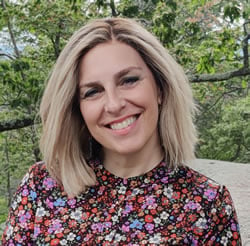
My aunt, Sara Rochel Schochet, passed away recently, just days before the joyous holiday of Purim.
My aunt was 65 years old. She was an active woman, a teacher and a mentor par excellence. She died suddenly, without notice or warning. One moment she was planning for her many commitments, the next she suffered an aneurysm, leading to her death.
The aftermath is, of course, tragic for her family and all whom she touched with her warmth and wisdom. Death is always painful, but all the more difficult to digest when it comes so suddenly, without any prior preparation or final words of parting.
Thousands attended her funeral in Los Angeles, from where she was flown to Israel, to be buried in her birthplace. Her friends, students and acquaintances, the many who turned to her for advice, help or compassion, all came to say their final goodbyes to this dignified, noble woman, and to share the tragedy with her loved ones – my uncle, a renowned personality and Rosh Yeshiva, as well as her six children, all educators.
The pain was still raw, yet my uncle courageously chose to address the many present. It was obvious how difficult the task was for him, and so unlike his usual calm demeanor, he broke down throughout. But my uncle felt compelled to speak. He needed to do this for her, as his last gesture of love.
My aunt and uncle live on the West Coast. Due to the distance, we saw them only occasionally. But even from the few memories I have of my aunt, my uncle's words resonated. As is Chabad custom, he was not eulogizing her, but rather speaking the way she would have, conveying what would have been her last parting words had she been given the opportunity.
There are those who sermonize throughout their lives on how they expect others to live. There are others who have the opportunity to prepare for their end and share their wishes. And then there are those, like my aunt, who, through the way they lived, leave a legacy of who they were and what they valued.
My aunt had the rare combination of being a woman of strong values and noble character, but who was also gracious and welcoming. She wouldn't bend her beliefs, but didn't judge others for theirs. Now, in death, by my uncle sharing what he felt would be her parting message, she continued to teach, by example, what she wanted others to strive to be.
Below are condensed points from my uncle's talk, essential messages for us to contemplate in our own lives:
1) I'm sorry: As human beings, we all make mistakes. Sometimes we say things we shouldn't. Sometimes we forget to say things we should. How often do we think that we have time to apologize for a hurt? There will always be a tomorrow… or so we think…
My uncle asked all those present to recite the following words with him, words we say nightly before retiring to bed, on behalf of his wife, to forgive her for any possible misdeed. "Master of the universe, I hereby forgive anyone who has angered me or vexed me or sinned against me, either physically or financially, against my honor or anything else that is mine, whether accidentally or intentionally, inadvertently or deliberately, by speech or by deed…"
2) Thank You: How often do we take things for granted? We neglect to express our appreciation for big, or little, things. My aunt did not get the opportunity to thank those who had showed support, kindness, love and help. On behalf of his wife, my uncle thanked all those who helped her, the doctors and members of Hatzolah (the Jewish volunteer ambulance service), those who prayed or took upon themselves good resolutions on her behalf.
3) Unite: Unfortunately, we are no strangers to tragedy. Every community suffers at some point. Whenever my aunt attended a funeral and saw people come together in grief, she cried, "Why do we see everyone unite only when it comes to sorrow?!"
We are all unique human beings. We may have different customs or a different emphasis in the way we serve G‑d. But, as Jews, we have one Torah and one G‑d. Our long, difficult exile began due to senseless hatred and divisiveness. We need to put away our pettiness, and unite in joy. Rabbi Schneur Zalman of Liadi, the Alter Rebbe, wrote that the obligation to love your fellow applies even to those whom we never met. Nowadays, we need to focus on loving those whom we do know and bear a grudge against.
4) Retain Your Dignity: Our inner struggles are not only about particular actions, but are struggles of identity. My aunt would have said to her students, "Know that you are daughters of royalty, chains in the link of our heritage since the beginning of time. Act and dress to reveal your inner dignity, and to demonstrate your pride in your birthright. Even in the darkest moments of exile, we must not forget who we are."
5) Treasure Your Heritage: To my aunt's six children she would have said, "I'm sorry that I'm leaving you… I didn't have riches in this world, but you were my treasures, my nachas, and my happiness. Remember what I tried to give you. I tried to make a life for each of you—to show you the beauty of a Shabbat, to create the mood and atmosphere of each special holiday. I tried to give to you what I received from my own parents. Please don't forget this! Give this message over to your children. I will always be there for you, but you must also be there for me."
6) Keep Strong: We are taught that all G‑d does is out of kindness, for our own good. This long and harsh exile and even the most inexplicable tragedies are, on some level, for our good. Though these do not feel like kindnesses, we must believe they are.
Strengthen yourself! Use this as an opportunity to grow.
All the time limits for the redemption have arrived and passed, but, unfathomably, G‑d wants just a little bit more from us. Do that little bit more. And then let us ask that the long awaited time finally arrive, when tears will be removed from every face and when His goodness will be openly manifest.
Most of us are not comfortable to contemplate our end. The fragility of life makes us feel vulnerable and we avoid the topic of death—or anything that reminds us of it—at all costs. Yet none of us know when our sojourn in this world will expire and when we may take our last breath.
Occasionally it can be positive to reflect: What would you want your last words in this world to be? What message would you want to share with your loved ones? What legacy would you want to impart about what is precious to you and what values you hold dear?
A depressing thought? Perhaps. Or maybe an empowering one.
One that can actually change the direction or focus of how we choose to live our lives.






